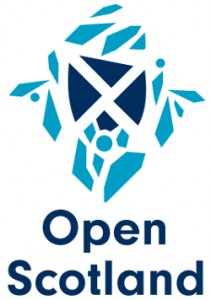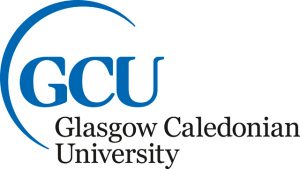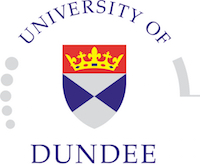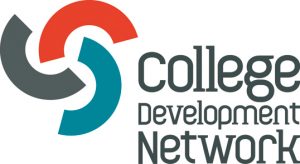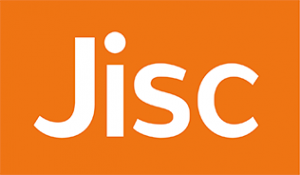The following comments were drafted by Joe Wilson and Lorna M. Campbell and submitted in response to the World OER Congress Action Plan on behalf of Open Scotland and the University of Edinburgh. The draft Action Plan, Outcome and Recommendations is available in English and French here http://www.oercongress.org/woerc-actionplan/
1. Capacity of users to access, re-use and share OER
Awareness and skills to use OER:
a) Key educational stakeholders (teachers, teacher trainers, educational policy makers and librarians) should be provided with capacity building to raise awareness on how OER can enhance teaching and learning.
b) Systematic and continuous capacity building (in-service and pre-service) on how to find, modify, create and share OER should be an integral part of teacher training programmes. This would include capacity building on digital literacy to identify, share and use OER. The support of governments, educational institutions and teacher associations for this is important.
UNESCO / COL should consider codifying baseline standards for capacity building; e.g. understanding copyright, how to use open licences, describing content for resource discovery.
Sharing OER:
c) Legal frameworks of educational institutions should support the development and use of OER by teachers.
Add “and professional bodies” here.
f) A 360° continually updating function should be introduced that allow OER creators to inform users on updates as well as users to suggest updates and modifications of OER.
This seems unrealistic.
g) Institutions and/or teachers should aim to use OER-based teaching materials as an integral rather than as a peripheral element of curriculum.
This is an important point.
Finding OER:
h) Indexing of OER resources (including in national OER repositories) should be further developed to support the identification of existing OER.
i) OER repositories should have clear action plans with performance indicators to encourage goals such as accessibility, interoperability with other repositories, usage and sustainability.
j) Effective meta-analysis and data mining practices should be encouraged for OER retrieval.
There is too much reliance here on dedicated OER repositories. OER repositories are just one way to manage and disseminate content. Web platforms, local repositories, and content aggregators also have an important role to play. Don’t let a single technology approach drive policy and strategy. Better encoding of machine readable licences will help to improve resource discovery. Look at the work of Schema.org and LRMI. Work with search engines to optimize OER discovery.
A good example of a lightweight approach to OER aggregation is the Solvonauts open source OER search engine http://solvonauts.org/
2. Language & Cultural issues
OER made available in diverse languages and adapted to the related cultural context where it is used is vital for uptake in local contexts. Furthermore, for OER to be used by educational systems, issues related to the sharing and accepting of knowledge from different sources need to be addressed.
b) Harness technologies that overcome the language barrier such as online translation systems.
Look at the MediWiki Content Translation tool https://www.mediawiki.org/wiki/Content_translation Engage students in content translation, this can be a valuable learning experience and also involves them in the creation of OER.
A good example of this approach is the University of Edinburgh’s Translation Studies MSc which includes a Wikipedia translation assignment http://thinking.is.ed.ac.uk/wir/2017/01/05/wikipedia-assignment-translation-studies-msc/
3. Ensuring inclusive and equitable access to quality OER
OER needs to be accessible to all learners, including those who have disabilities, those that are economically disadvantaged and within a framework that ensures gender equity. Electricity and connectivity remain challenges in many parts of the world. For this reason, it is important that it is possible to find/use/modify and share OER using diverse ICT environments, including on mobile devices, or even to the extent possible, off-line Furthermore, in order for OER to be used with confidence by the educational community mechanisms to ensure confidence of the quality of resources should be in place.
g) Ensure systems for peer-review quality control of OER
We need to rethink what peer review actually means in the context of open educational resources – feedback from learners and teachers is may be more useful than more traditional peer review mechanisms. Don’t presume that peer review is the only way to measure quality.
4. Changing Business Models
Globally, the traditional business model for commercial textbook publishing has come under economic pressure to evolve because of the technological development and the digitization of content. The changes experienced by the publishing industry are affecting its market paradigms and business models (Rodrigues, Chimenti, Nogueira, Hupsel, & Repsold, 2014). There is a need to identify innovative solutions and develop new business models, so that the interests of the OER community and educational publishers are addressed.
Business models should focus purely on reforming traditional models of textbook production. Business models should incorporate drivers to encourage teachers and learners to engage with open education, e.g. professional recognition for creating and reusing OER. This needs to be embedded in teaching standards.
d) Charging for hard copies of OER materials, use of paid advertisements, and other means for income generation to sustain OER-based education.
It’s important to educate teachers and learners about the non-exclusive nature of open licences. Also, open licences should not be seen as a barrier to working with innovative technology providers.
5. Development of supportive policy environments
Mainstreaming of OER requires the creation, adoption, and implementation of policies supportive of effective OER practices. In this regard, funding flows are more likely to follow from policy directives, and policies can be applied for both bottom-up and top-down approaches.
b) Policies that support awareness raising on the benefits of OER; funding for evidence based research; incentives for following good practices; and the fostering of supportive strategies and practices to support the use of OER by the educational community.
Evidence based research is critical for supporting the adoption of OER policies. However research into the benefits of OER shouldn’t focus purely on cost savings. Research also needs to focus on benefits to learners and teachers, improved quality of learning content, and improved learning experience.
i) Policies which recognize OER’s contribution to knowledge creation, similar to the publication and sharing of research, provide institutions with strong incentives for the adoption of OER.
The focus needs to remain on OER policies but it is important to relate OER policies to Open Access & open data policies.
Examples of OER Policy development:
1. Scottish Open Education Declaration http://declaration.openscot.net/ is an open community declaration based on the UNESCO OER Declaration which broadens the scope of the guidelines to encompass all aspects of open education, rather than OER specifically. The Declaration is hosted on an installation of Comment Press and all those with an interest in open education are encouraged to contribute. The Declaration is managed by the Open Scotland initiative.
2. University if Edinburgh OER Policy http://www.ed.ac.uk/files/atoms/files/openeducationalresourcespolicy.pdf This policy is based on a policy originally developed by the University of Leeds as part of the UK OER Programme. This policy was subsequently adapted by the University of Greenwich and Glasgow Caledonian University before being adopted by the University of Edinburgh, so the policy itself has become a reusable OER.
New Recommendation
Ensure open education, OER and open licensing is embedded in all teachers training and professional development programmes to ensure that all teachers develop the digital skills to create and use open educational resources, engage with open education and develop their own open education practice. Examples of good practice
Example of OER Good Practice
1. 23 Things http://www.23things.ed.ac.uk/
23 Things for Digital Knowledge is an award winning (LILAC Credo Digital Literacy Award 2017), open online self-paced course run by the University of Edinburgh.
The course, developed by Charlie Farley of Educational Development and Engagement, is designed to encourage digital literacy and to be of use to a broad audience within and beyond the institution. The aim of the course is to expose learners to a range of digital tools for personal and professional development as a researcher, academic, student, or professional. Learners spend a little time each week, building up and expanding their digital skills and are encouraged to share their experiences with others.
The judges of the Credo Digital Award for Information Literacy described the course as “a superb resource which builds digital literacy through a well-designed combination of information, discovery and social interaction. It is very flexible in how it can be used, with bitesize chunks of learning, and accreditation through badging for those who wish to work through the whole course. It therefore appeals to a wide range of learners.”
All course content and materials, unless otherwise stated, are licensed under a Creative Commons Attribution 4.0 International License (CC BY) and the University actively encourages others to take and adapt the course. The course has already been used by many individuals and organisations outwith the University of Edinburgh and it has recently been adapted for use by the Scottish Social Services Council as 23 digital capabilities to support practice and learning in social services.
2. LGBT Healthcare 101 http://open.ed.ac.uk/lgbt-healthcare-101/
Digital story interviews with LGBT+ volunteers, ‘LGBT+ Healthcare 101’ presentation, and a secondary school resource, created by and for University of Edinburgh medicine students. The resources were created as part of a project to address a lack of awareness and knowledge of LGBT+ health, and of the sensitivities needed to treat LGBT patients as valuable skills for qualifying doctors.
Resources for the LGBT+ Healthcare 101 course, created by Calum Hunter, Matthew Twomey, Derrick NG, Navina Senthilkumar and Eleanor Dow. Released under a CC BY licence.
3. Open Scotland https://openscot.net/
Open Scotland is a cross sector initiative supported by the Association for Learning Technology’s Scotland Special Interest Group. The aim of this initiative is to raise awareness of all aspects of open education and explore the potential of open policy and practice to benefit all sectors of Scottish education. Scotland has a distinctive and highly regarded tradition of education, however policies to support and embed open education are in their infancy and, to date, there have been no open funding calls to support open education across the sector.
Despite the absence of top down strategic drivers, a considerable number of open education initiatives have emerged across the Scottish education sector including MOOCs, OER repositories, OER guidelines for staff and students, and adoption of Open Badges. Building on these developments, and experiences gained from supporting open education programmes elsewhere in the UK, Open Scotland aims to encourage the sharing of open educational resources, embed open educational practice and lobby for policies that support open education at the national level.
Inspired by the UNESCO Paris OER Declaration, Open Scotland has also launched the Scottish Open Education Declaration, which builds on the principals of the UNESCO declaration, but expands its scope to encompass all aspects of open education practice. The Scottish Open Education Declaration, http://declaration.openscot.net/ is an open community draft, which all those with a commitment to open education are encouraged to contribute to.






